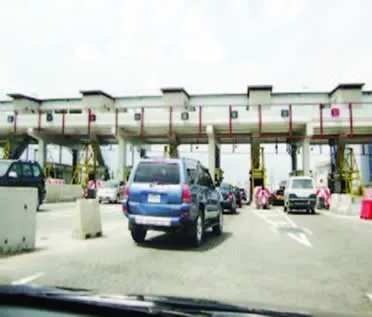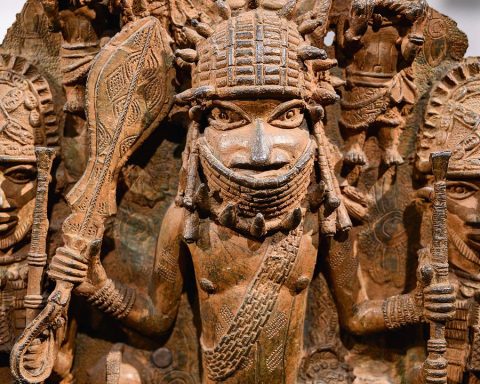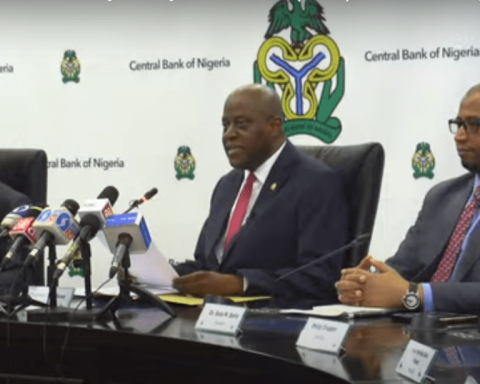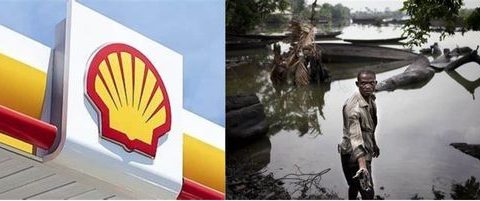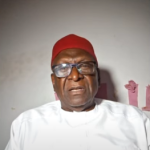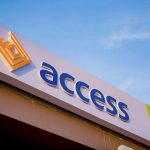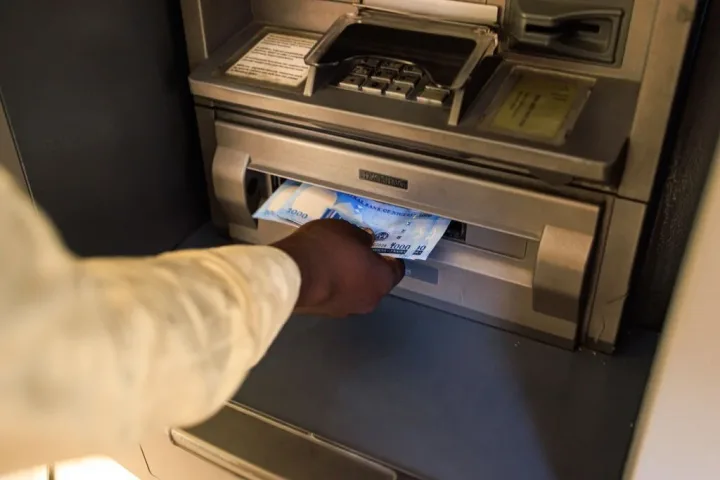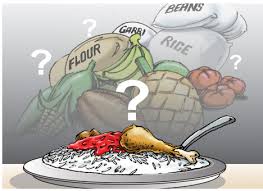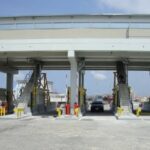While Nigerians are grappling with the high cost of things across the country, the Federal Government recently launched toll operations on selected highways, beginning with the Abuja–Akwanga–Lafia–Makurdi Road corridor.
The Federal Government approved a Federal Roads and Bridges Tolling Policy. It said motorists using the 227.2km Abuja–Akwanga–Lafia–Makurdi highway would begin to pay tolls ranging from N500 for saloon cars to N1,600 for multi-axle vehicles.
Join our WhatsApp ChannelAccording to the Minister of Works, David Umahi, during the official commissioning of toll operations at the Garaku Toll Station in Nasarawa State, the tolling of the Abuja-Akroadwanga-Lafia-Makurdi highway is to repay $460.8 million loan obtained from the China Exim Bank for the road’s rehabilitation and upgrade.
Umahi, who was represented by the Minister of State for Works, Bello Goronyo, explained that the Federal Government had in 2023 under the Muhammadu Buhari administration, struck a 25-year “Operate and Maintain” concession agreement with Messrs China Harbour Operations and Maintenance Company Limited in partnership with Messrs Catamaran Nigeria Limited.
“It is important to state that the Toll Order/Fee Schedule has been gazetted as follows: saloon cars will be tolled at N500, SUVs/jeeps, N800, minibuses, N1,000, and multi-axle vehicles at N1,600,” the minister had stated.
“However, frequent road users, such as commercial light vehicles defined under the Federal Highway Act, will enjoy a 50 per cent discount.”
Additionally, the minister stated that tricycles, pedal vehicles, motorcycles, and other two- or three-wheeled transport modes primarily used by disadvantaged populations will be exempt from toll charges.
Police and military vehicles are also exempted from the toll fees to facilitate their operations.
The minister emphasised that the collection of tolls will generate much-needed revenue for road maintenance and expansion across the country.
The 227.2-kilometer road is among the nine expressways scheduled for tolling. Other roads include the Lagos-Ibadan Expressway, Second Niger Bridge, Abuja-Kano Road and Makurdi-9th Mile Road.
The introduction of toll collections on federal highways has been greeted with mixed feelings.
Some have raised questions as to whether it is really a return of toll collection or it has existed in other forms.
The reintroduction of toll gates in Nigeria has been a long-standing issue. The government first dismantled toll gates on federal roads in 2003 under the Olusegun Obasanjo administration which cited corruption as the government was unable to get a proper account of the funds generated. However, plans to re-establish them have been in the works since 2012.
Impact of Toll fees
The impact of toll gate fees in Nigeria is a topic of ongoing debate. On one hand, the fees can generate revenue for road maintenance and development, which is crucial for the country’s transportation infrastructure, as noted by the minister of works.
On the other hand, there are concerns that the toll gate fees will increase the financial burden on citizens, particularly those living in poverty. With Nigeria’s high poverty rate, the additional expense of toll fees could further exacerbate economic hardship.
There are also worries about the potential mismanagement of toll revenue, which could undermine the intended purpose of the fees.
Those who argue that toll collections on the highways have existed in other forms cited cases of collections/extortions that police, Customs, military officers Federal Road Safety officials, and other government operatives who mount multiple checkpoints over the years.
For instance, checkpoints on the highway from Lagos to Onitsha East-west road are estimated to be around 50 all for police, army, and federal road safety corp, and customs among others.
Reacting to the Federal Government’s plan to bring back toll gates to the highways, the Nasarawa State House of Assembly called on the management of toll gate operations in the state to reduce toll fees, citing hardships faced by road users.
READ ALSO: Mixed Reactions As FG Reintroduces Toll Gates On Highways
Will the Toll fees be Utilised for Road maintenance?
There were mixed reactions by Nigerians online. While some lamented that the return of toll fees to the federal highways would increase transport costs and worsen the financial burden on the citizens, others submitted that if the funds realised are properly utilized, would help in maintaining the road as done abroad.
@Jahima04 stated: “Transportation will definitely increase around those roads with Tolls. Too many policies with no human feelings even in these hard times. They just keep adding more suffering. Police will collect bribes for roads, the government will collect taxes for roads, fraudulent unions will collect taxes for roads, armed robbers will rob you for roads, and kidnappers will Kidnap you for roads. Potholes go burst your tyres on the road, fuel is High, rice cost, Dollar High, everything bad.”
“They should make sure that the payment at the toll gate is efficient. Serious traffic jam today at Garaku Toll Gate because the POS machines are not working,” MA Usman @MauIgagih stated.
However, another X user, Mayor of Crypto @smart_money7 said: “If this will keep the roads in excellent state, it’s a welcome development.”
READ ALSO: Lagos-Calabar Coastal Highway: Nigerian Govt To Charge N3,000 Per Toll Gates
@blochief wrote: “This is the future: build the road and digitally toll it. Use part of the money for repayment and the other part for maintenance and security on the road, because you need to secure where you are tolling. This is my issue with OBJ instead of him doing something on how people steal the toll gate money.”
Some called on the government to reduce the toll fee across different categories of vehicles.
“The toll fee shouldn’t be more than N200 and N500, respectively. Charging N500 and N1600 for tolls is way too much,” Obiora Otu, @Oteesolution.
Lamenting on other forms of payments that motorists are subjected to, an X handle @M_paki001 said: “What about the military, paramilitary, vigilantes, and thugs taxing drivers day and night? I think after Nasarawa, you’ll keep encountering endless checkpoints where these people exploit drivers. They set fixed amounts that you must pay, or else you’ll have to leave your vehicle there.”
Among those supporting the return of toll plazas on Federal highways, many express concern about transparency and accountability in the management of the funds raised through toll collections.
Victor Ezeja is a passionate journalist with six years of experience writing on economy, politics and energy. He holds a Masters degree in Mass Communication.

